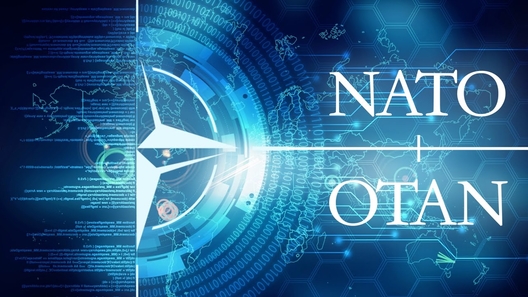 Beyond elections, cyberwarfare has made traditional rules governing armed conflict irrelevant. Just this week, it has emerged that Russia has targeted NATO soldiers’ smartphones in order to gain information about troop activity and to intimidate soldiers. Such instances beg the question: What is “deterrence” in the digital world? What is a “proportional response” when a ship’s navigation system is hacked or a power plant shut down? What happens when it takes months to track down who was responsible for a debilitating attack on the financial system?
Beyond elections, cyberwarfare has made traditional rules governing armed conflict irrelevant. Just this week, it has emerged that Russia has targeted NATO soldiers’ smartphones in order to gain information about troop activity and to intimidate soldiers. Such instances beg the question: What is “deterrence” in the digital world? What is a “proportional response” when a ship’s navigation system is hacked or a power plant shut down? What happens when it takes months to track down who was responsible for a debilitating attack on the financial system?
The response to these cybercrimes must be international and must be broad-based, ranging from regulating social media to guarding our electrical grid and electoral systems. Building a collective defense in this new code war is at least as great a challenge as staving off the territorial or regional threats of the Cold War, when NATO was established in order to respond to threats in Europe….
Can the wider West establish a global “cyber NATO?” It would be difficult but so too was the founding of NATO itself, which was called into being only after successive communist coups in Eastern Europe. When it comes to digital threats, the liberal democratic West has been subjected to enough wake-up calls….
Concern, however, is growing. NATO’s own Cooperative Cyberdefense Center of Excellence in Tallinn, the capital of Estonia, which is still more of a think tank than an operational center, is open to non-NATO democracies. Together with the Riga-based Strategic Communications Center of Excellence, another NATO initiative, and the recently-opened European Center of Excellence for Countering Hybrid Threats in Helsinki, the conceptual bases for international digital defense now exist. These centers deal with all of the threats — from infrastructure and hacking to manipulations of social media — that we have encountered in recent years across the board, often from the same list of usual suspects….
Until defense of democracy in the digital era is taken up by governments collectively, both in NATO and outside the alliance, liberal democracies will remain vulnerable to the cyberthreats of the 21st century.
Toomas Hendrik Ilves served as president of Estonia from 2006-2016. He is a distinguished visiting fellow at the Hoover Institution.
Image: Defending democracy in the digital era (graphic: SHAPE NATO)
